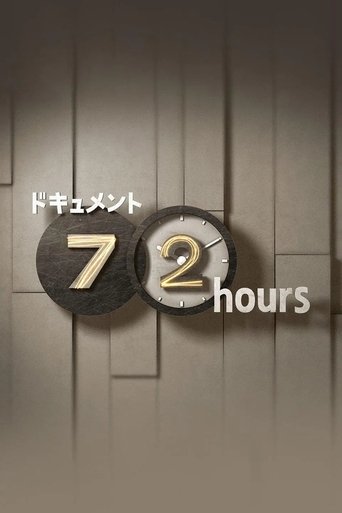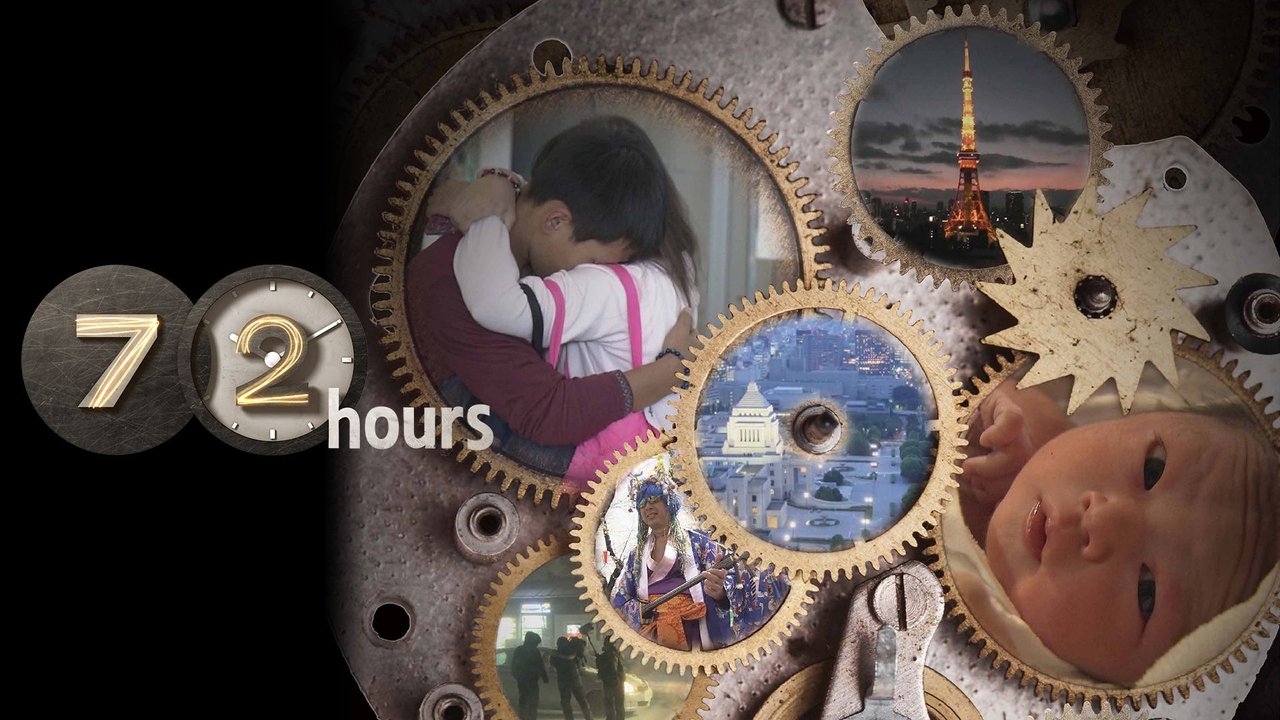
Document 72 Hours
Season 1
Episodes
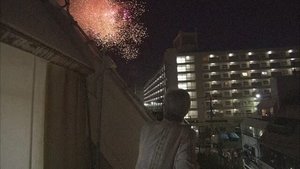
1. Tokyo Jingu Gaien Fireworks Festival for One Million People
The Jingu Gaien Fireworks Festival was held in the middle of Tokyo. The moment when people living in different parts of the metropolis stop moving for a moment and look up at the same fireworks. What thoughts go through their minds? This film looks at the 72 hours between the preparation for the event and the start of normal life again.
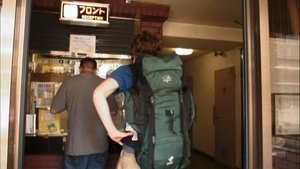
2. Tokyo, Yamaya, Backpackers in Tokyo
The “Yamatani” area, once known as the “workers' town,” is now about to be transformed into a hub for foreign travelers. Word of mouth has spread about the inexpensive 2,500 yen per night simple lodging, and now there are even lodgings where 90% of the guests are foreign nationals. French people are crazy about Japanese youth fashion. An Englishman says Akihabara is his mecca. Accompanying foreign tourists who tour Tokyo while sleeping and waking in a room of only 2 tatami mats, we will explore the charms and wonders of Japan that Japanese people do not see.

3. Tokyo Station Express Bus Terminal
Express buses connect Tokyo and regional cities at the lowest fares. The Yaesu South Exit of Tokyo Station is the largest express bus terminal in Japan, with more than 70 routes from Aomori in the north to Shimonoseki in the south. The purpose of the passengers varies. Wives and children who have come to see their husbands who have moved away from home. An elderly couple traveling around Japan for the last time in their lives. Couples who are reluctant to part from a long-distance relationship.... The camera is set up at an express bus terminal over a three-day weekend, and the film explores each passenger's earnest "reason for traveling.
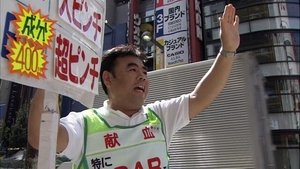
4. Blood Donation Room at Shinjuku East Exit
Japan's largest blood donation room at Shinjuku East Exit, visited by 250 people a day. Blood products made from donated blood last only three weeks. Platelets last only 72 hours. The blood donation rooms offer free hamburgers, ice cream, palm readings, and massages to attract donors, but the inventory is always tight. This film follows the 72-hour process of blood delivery to medical institutions, using the Shinjuku East Exit Blood Donation Room as its main setting, and examines the reality of blood distribution, which is indispensable for medical care.
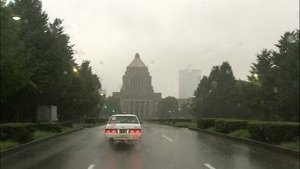
5. Taxi: Honest Conversation in Tokyo
Cab cabs are small, intimate spaces. In the cab, away from the hectic pace of business and daily life, the driver and I tend to engage in honest conversation. The driver's real conversation is about the economy, his family's problems, or even his dissatisfaction with politics. What kind of picture would emerge if we were to link these conversations together? The film depicts the true feelings of ordinary people and the state of the world by following conversations in a Tokyo cab during the 72-hour period in which news of the inauguration of Abe's new cabinet was broadcast.
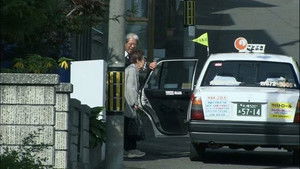
6. Honest Conversations with a Taxi, Sapporo Version
We follow a conversation in a cab car in Sapporo. Sapporo has been hit hard by the financial meltdown caused by the bursting of the bubble economy. Economic recovery has yet to be realized, and the entertainment district of Susukino continues to decline. On the other hand, there was positive news in 2006, when the local Nippon Ham Fighters team won the championship for the first time in 25 years. In late September, when the new Abe administration took office, we followed the conversations of Sapporo's taxi drivers for 72 hours to get a picture of the real feelings of ordinary people in Sapporo, which are different from those in Tokyo.
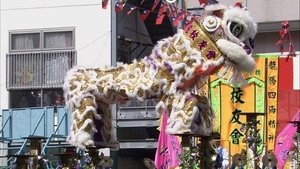
7. Yokohama Chinatown, Youth Graffiti
Yokohama Chinatown, the largest town of Chinese merchants in Japan, is packed with tourists from all over the country on weekends. In October, the town is busy preparing for one of the biggest festivals of the year, the Sohu Festival. The main attraction is the traditional acrobatic lion dance. Young graduates of the Chinese Academy in the center of town practice until late at night. Some have taken over Chinese restaurants, others have chosen to leave the city and live in Japanese society. The three days leading up to the festival provide a glimpse into the bonds of Chinatown and what it means to be an overseas Chinese.
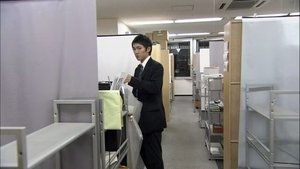
8. Roppongi Hitotsubo Office
Roppongi Hills has become a symbol of winning. Nearby is a mysterious building. Inside the building are a row of booths, each about 1 tsubo in size, each with only a desk and a telephone. Each of these booths is an egg of a “company” that aspires to become the Hills of tomorrow. In this age of IT, we follow these people from morning till night, as they go about their business, using their feet as poles, for three days, and capture an unknown aspect of the nightless city of Roppongi.
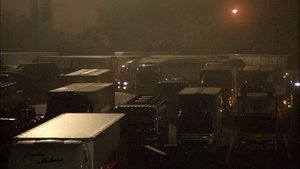
9. Ashigara Service Area, Tomei Expressway
An hour and a half west on the Tomei Expressway from Tokyo. Ashigara Service Area is located there. Fuji, and even a bath, people from all walks of life stop by this popular rest area. Fuji, tourists with their pets, and truck drivers driving all over Japan. For three days, the camera stays at the 24-hour service area to follow the people who stop by, their purposes for their journeys, and the thoughts and feelings they hold in their hearts.
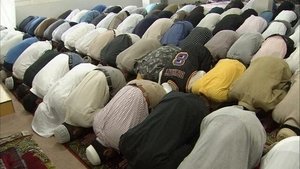
10. Saitama: The Muslim Next Door
There are 3,000 Muslims living in the Toda City area of Saitama Prefecture. Although people tend to have negative preconceptions about Muslims after the 9/11 terrorist attacks, the true face of Muslims is friendly and pleasant. In October, they observe Ramadan, a month-long period of daytime fasting. During the last three days of Ramadan, we closely follow the lives of these people and hear their frank opinions about their work, families, and faith.
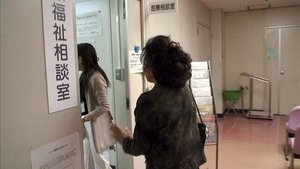
11. Osaka Medical Center, Patients' Consultation Room
You never know when you might suffer a serious injury or illness. At the Osaka Medical Center, a large hospital in the Kansai region, there is a place that offers help to patients who are at a loss after a sudden surgery or hospitalization: the “Medical Consultation Office” staffed by three young doctors. The consultation services offered are diverse. They offer a wide range of advice, from concerns about treatment and payment to family problems and how to make ends meet after discharge from the hospital. The film follows the patients and their families closely for three days, depicting how they try to live their lives one step at a time, despite their confusion about life in the hospital.
